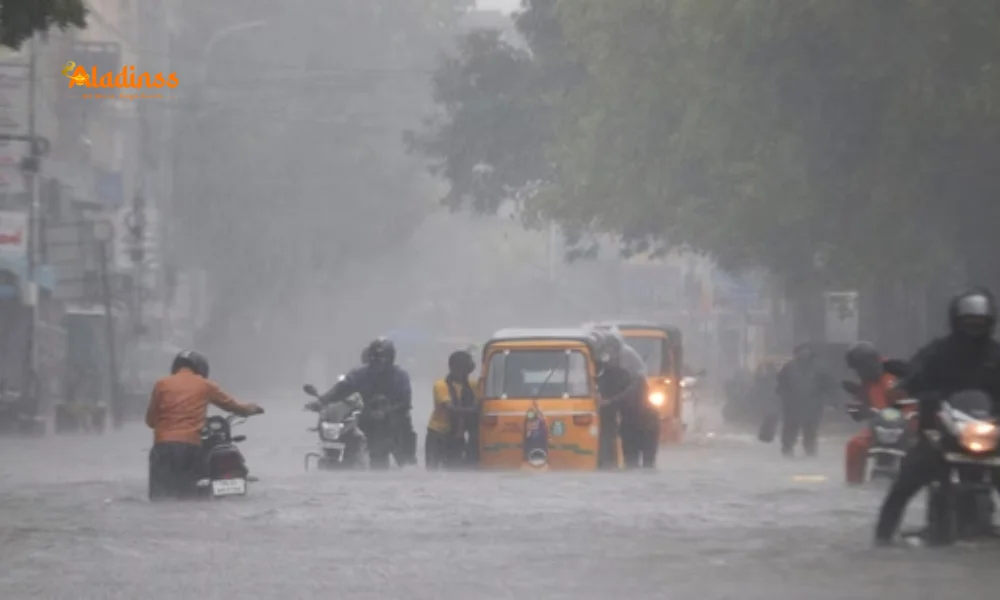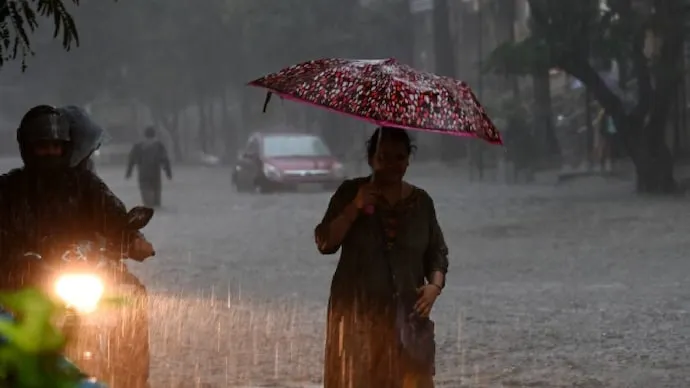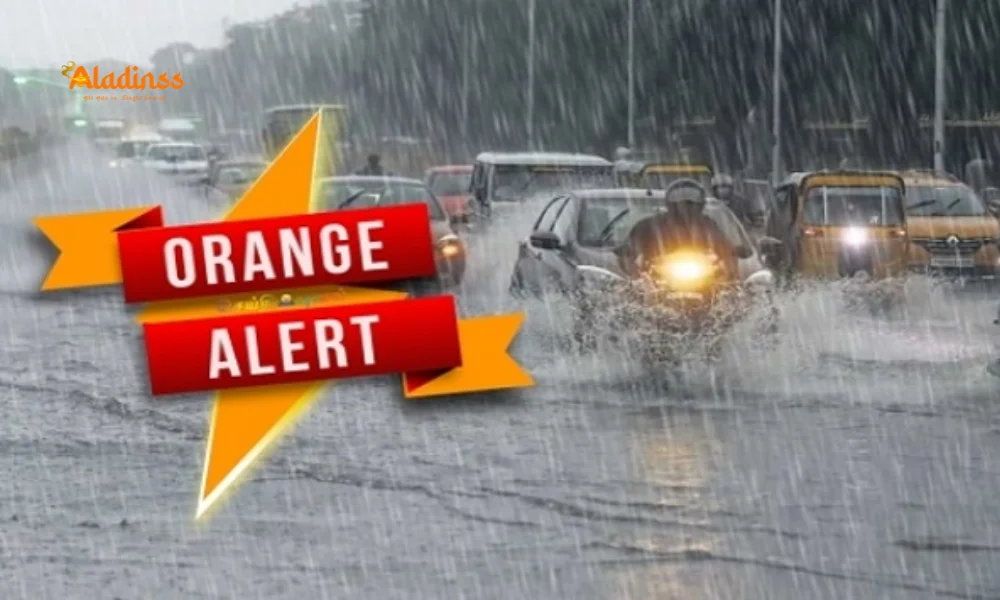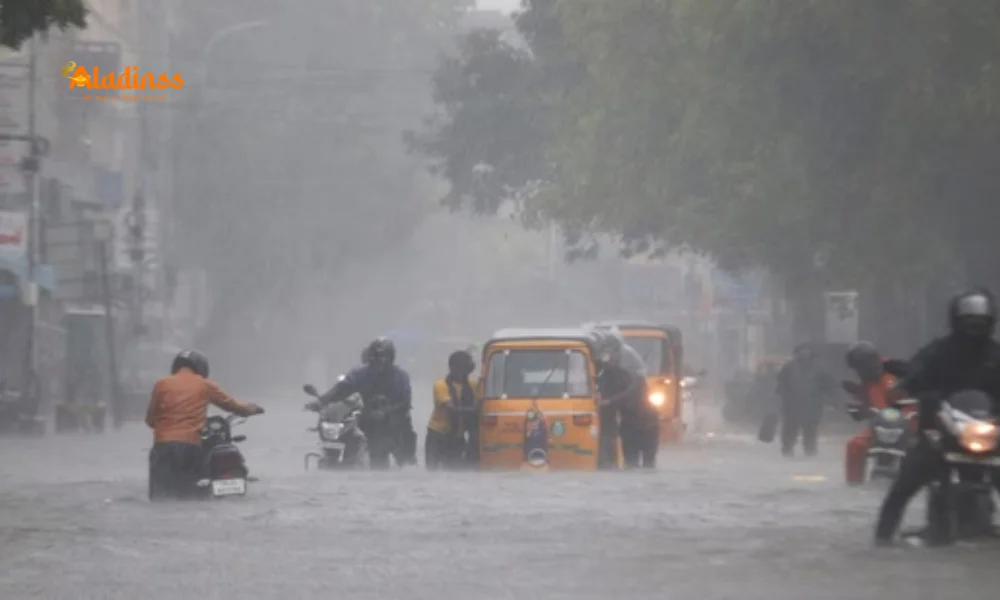Heavy Rain Warning for Tamil Nadu Until August 29, 2025

Heavy Rain Warning Issued for Tamil Nadu Until Tomorrow
The Chennai Meteorological Department has issued a weather warning for Tamil Nadu, forecasting heavy rainfall in several regions, particularly in the hilly areas of Coimbatore and Nilgiris districts, until August 29, 2025. This alert comes as part of a broader weather system affecting Tamil Nadu, Puducherry, and Karaikal, with moderate rain accompanied by thunder and lightning expected in isolated areas until September 2, 2025. The department has also highlighted above-normal temperatures and cyclonic winds impacting coastal regions, urging caution for residents and fishermen alike.
Heavy Rainfall Expected in Coimbatore and Nilgiris
According to the latest update from the Chennai Meteorological Department, heavy rainfall is likely to lash the hilly regions of Coimbatore and select areas of Nilgiris until tomorrow. These districts, known for their elevated terrains and lush greenery, are expected to experience intense showers, potentially leading to waterlogging and disruptions in daily activities. Residents in these areas are advised to stay updated with local weather reports and take necessary precautions, such as avoiding low-lying areas prone to flooding.
The heavy rain warning is part of a larger weather pattern influenced by cyclonic activity in the Arabian Sea and Bay of Bengal. The department has indicated that the current atmospheric conditions are conducive to significant rainfall, particularly in Tamil Nadu’s western districts. This forecast aligns with trending weather updates, making it critical for residents to stay informed through reliable sources.

Moderate Rain Across Tamil Nadu, Puducherry, and Karaikal
Beyond Coimbatore and Nilgiris, the Meteorological Department has predicted moderate rainfall accompanied by thunder and lightning in isolated parts of Tamil Nadu, Puducherry, and Karaikal until September 2, 2025. This widespread weather activity is expected to bring relief from the heat but may also pose challenges, such as traffic disruptions and minor flooding in urban areas. The forecast emphasizes the need for preparedness, especially in low-lying regions and areas with poor drainage systems.
In Chennai, the capital city, the weather is expected to remain partly cloudy with chances of moderate rain and thunderstorms. This could impact daily commutes and outdoor activities, prompting residents to plan accordingly. The combination of rain and lightning also raises safety concerns, and authorities have advised avoiding open fields and tall structures during thunderstorms.
Above-Normal Temperatures in Tamil Nadu
In addition to the rainfall, the Meteorological Department has noted that maximum temperatures across Tamil Nadu are likely to be 2 to 3 degrees Celsius above normal in the coming days. This unusual warmth, combined with high humidity, could make conditions uncomfortable, particularly in non-rainy areas. The combination of heat and rain is a hallmark of Tamil Nadu’s monsoon season, which often brings a mix of relief and challenges for residents.
The elevated temperatures are attributed to the current atmospheric dynamics, including the influence of cyclonic systems in the Arabian Sea. While the rain may provide temporary cooling in some areas, the overall warmer-than-usual conditions could increase the demand for electricity and cooling systems, putting pressure on urban infrastructure.
Cyclonic Winds and Coastal Alerts
The Chennai Meteorological Department has also issued warnings about cyclonic winds affecting several coastal regions. Winds gusting between 45 to 55 kmph, with intermittent speeds reaching up to 65 kmph, are expected over the Mid-West and South-West Arabian Sea, as well as the Mid-East and North-East Arabian Sea. Coastal areas along South Gujarat, Konkan, Goa, Karnataka, and Kerala are likely to experience similar conditions, with wind speeds ranging from 40 to 50 kmph and occasional gusts up to 60 kmph.
These cyclonic winds are part of a larger weather system influencing the region, which also includes the Lakshadweep area. The Meteorological Department has strongly advised fishermen to avoid venturing into these areas due to the risk of rough seas and strong winds. Additionally, cyclonic activity is expected to impact the coastal regions of Andhra Pradesh, Orissa, West Bengal, and parts of the Bay of Bengal, including the South Tamil Nadu coast, Gulf of Mannar, and Kumari Sea.
Safety Measures for Residents and Fishermen
With heavy rain and cyclonic winds on the horizon, authorities are urging residents to take proactive measures to ensure safety. In Coimbatore and Nilgiris, where heavy rainfall is expected, residents should avoid traveling through flood-prone areas and secure loose objects that could be displaced by strong winds. The risk of landslides in hilly regions also calls for heightened vigilance, particularly in areas with recent construction or deforestation.
Fishermen along the Tamil Nadu coast, as well as those in neighboring states, have been advised to refrain from sailing until conditions stabilize. The rough seas and high winds pose significant risks to small vessels, and adherence to the Meteorological Department’s warnings is critical to preventing accidents. Local authorities are also monitoring the situation closely, with emergency response teams on standby to address any weather-related incidents.
Impact on Daily Life and Infrastructure
The heavy rain warning is likely to disrupt daily life in affected areas, particularly in urban centers like Coimbatore and Chennai. Waterlogging in low-lying areas could lead to traffic snarls, delays in public transportation, and challenges for commuters. Schools and businesses may also face temporary closures or operational challenges, depending on the intensity of the rainfall.
In rural areas, the impact could be more pronounced, with potential damage to crops and infrastructure in regions prone to flooding. Farmers are advised to take preventive measures to protect their fields, while local governments are preparing to distribute relief materials if needed. The combination of heavy rain and above-normal temperatures could also strain power grids, as demand for electricity rises to cope with the heat and humidity.
How to Stay Prepared
To navigate the upcoming weather challenges, residents are encouraged to follow these safety tips:
- Stay updated with the latest weather forecasts from the Chennai Meteorological Department.
- Avoid unnecessary travel during heavy rainfall, especially in hilly or flood-prone areas.
- Secure outdoor items to prevent damage from strong winds.
- Ensure proper drainage around homes and businesses to minimize waterlogging.
- Prepare an emergency kit with essentials like food, water, and first-aid supplies.
By staying informed and taking proactive steps, residents can mitigate the risks associated with the ongoing weather event. The Chennai Meteorological Department continues to monitor the situation and will provide updates as the weather system evolves.
Comment / Reply From
No comments yet. Be the first to comment!











